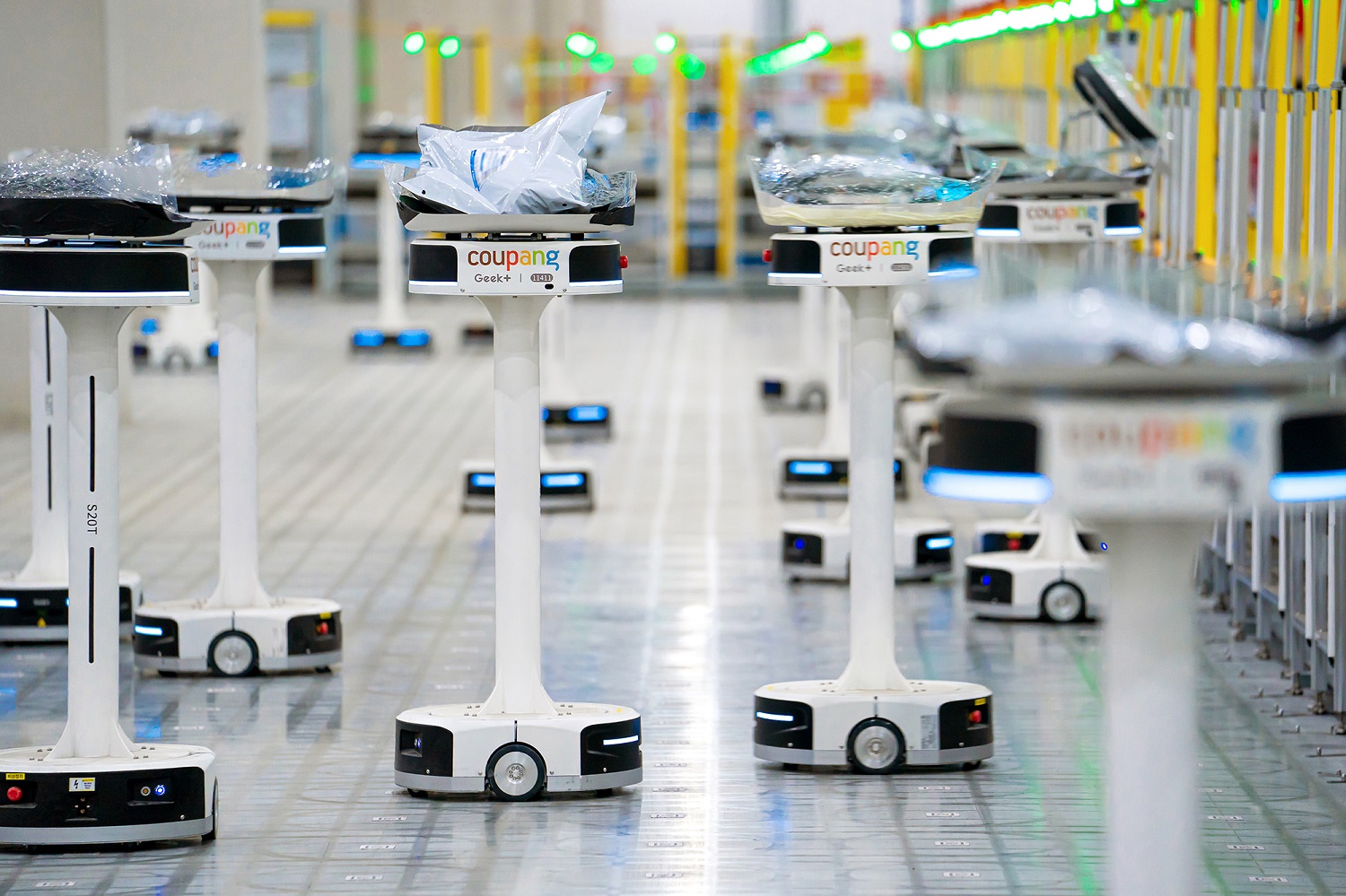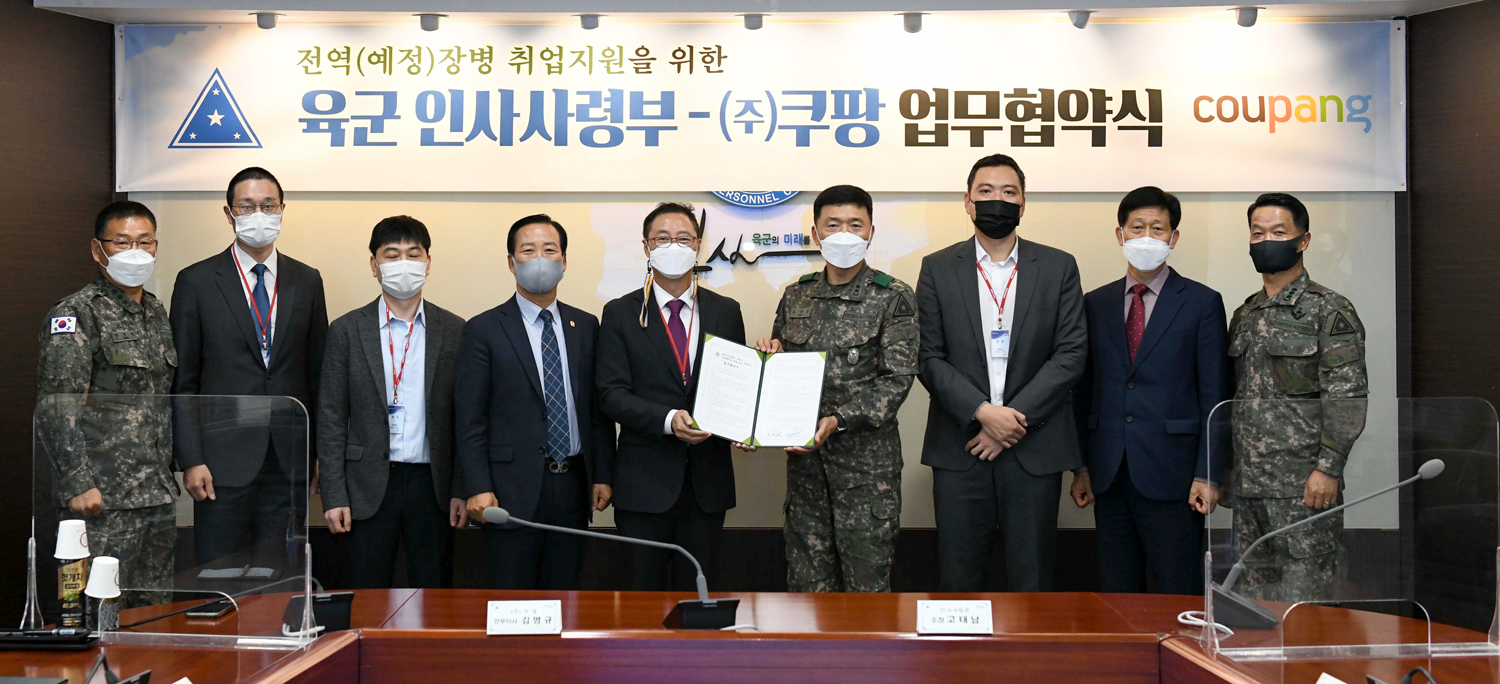Last May, YTN Science aired an episode focusing on Coupang for its show “ESG Korea.” ESG, which stands for “environmental, social, and governance,” represents the values that companies should practice to act responsibly and sustainably.
“With the rapid growth and expansion of the market, the ESG management practices of e-commerce companies are coming into sharp focus,” said Professor Heejun Park of Yonsei University’s Department of Industrial Engineering, who hosts the program, “[and Coupang] is building the future of e-commerce through continuous innovation.”
In the episode, YTN Science covered three major components of Coupang’s ESG practices:
1. Logistics innovations to reduce carbon emissions
- End-to-end systems: In traditional e-commerce, a product must go through multiple intermediaries before it reaches the customer. Coupang, on the other hand, has built an “end-to-end” logistics network in which it controls everything from the purchase of the product to delivery to the customer’s doorstep, drastically reducing the number of distribution stages required. Thanks to this innovation, Coupang has built an eco-friendly logistics system that minimizes product movement and reduces unnecessary packaging and carbon emissions.
- Reusable Fresh Bags: With Coupang’s patented Fresh Bags, which are reusable and insulated to protect fresh deliveries, Coupang can provide faster delivery of fresh goods in an environmentally friendly manner. Seven out of 10 fresh foods ordered by Coupang customers are delivered in Fresh Bags, replacing the use of an average 310,000 Styrofoam boxes per day. In terms of carbon emissions, this is equivalent to planting nine million trees a year in an area half the size of Manhattan.
2. Mutual growth management and social responsibility
- Win-win collaboration with small and medium-sized enterprises (SMEs): Coupang continually strives for collaborations with SMEs for mutual growth. For example, Sweet Balance, a salad company, more than tripled its sales and quintupled the number of employees in a year thanks to the success of Gomgom Salad, launched in collaboration with Coupang Private Label Brands (CPLB). Many such success stories can be found at Coupang, where 80% of sellers are SMEs with annual sales of three billion won or less. In 2021, Coupang raised 400 billion won to support small businesses, with participating SMEs achieving an average sales growth rate of 121% even in spite of the COVID-19 pandemic.
- A diverse and inclusive work environment: Coupang is committed to providing equal employment opportunities, and is the only e-commerce company in Korea with a department dedicated to supporting the underprivileged from recruitment to retirement. The company’s Inclusion Management Team is responsible for helping workers such as those with disabilities adapt to the job and develop their careers. One such employee, Mi-jeong Kang, said, “In other companies, employees with disabilities tend to perform simple tasks, but Coupang treats us as equals.”
- Support center for female Coupang Friends: To support female Coupang Friends, who work as the company’s delivery drivers, Coupang created the Coupang Friend Communication Team. Thanks to their support and consistent communication efforts, the number of female frontline workers doubled within a year after the team was established.
3. Introduction of innovative technologies for ESG
- Artificial intelligence (AI) and electric trucks: Coupang’s AI systems ensure worker safety by allocating the appropriate amount of work to each employee, taking into account various factors such as the amount of incoming parcels at the delivery camp. The company also uses AI to optimize delivery routes, minimizing carbon emissions, and continues to explore new technologies such as electric delivery trucks and hydrogen-powered trucks to further reduce its carbon footprint.
- Logistics automation for worker safety and convenience: Automated technology such as automated guided vehicles (AGVs) and automated packaging machines at Coupang’s logistic centers help drastically reduce work intensity for employees. Jun-hee Jeon, the company’s executive vice president of Rocket Delivery Development, said, “Social responsibility in ESG management should begin with the work environment.”
The episode concluded with a conversation between Professor Park and Coupang Representative Director of Business Management Hanseung Kang. “For Coupang, ESG means creating social value and positive change in people’s lives through our corporate actions. We provide safe and stable jobs to over 60,000 employees and growth opportunities for hundreds of thousands of small businesses,” said Kang. “We also broke the stereotype that ‘online shopping is not eco-friendly’ through technological innovations in the delivery process and the introduction of fresh bags. I believe Coupang’s innovative efforts to break these kinds of tradeoffs while implementing ESG practices and customer value form our very DNA.”








